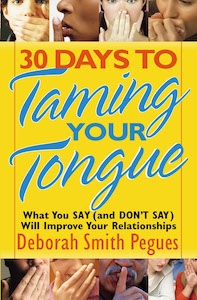What is behind gossip? A feeling of fear.
What makes it so tempting? A need to feel secure.
Why do we participate? A desire to be in the know and belong.
Hey, we’ve all done this and participated in it. It’s gossip. No matter how you justify it, gossip is not a great habit to develop in life OR in your career. It can quickly come back to haunt you. Rise above. When gossip comes your way, don’t participate.
Here are six picks that will inspire you to rise above:
Keep It Shut: What to Say, How to Say It, and When to Say Nothing at All by Karen Ehman. This is a great tool to use as inspiration and guidance for getting back on the right path. Ehman shares how women have struggled with words as far back as Bible times. She shares insight on how this relatable challenge can be overcome through study, prayer, and practice. When it comes to unkind words, “keeping it shut” and focusing on uplifting your relationships through kinder, and gentler, words is the ultimate strategy for success.
The No Gossip Zone: A No-Nonsense Guide to a Healthy, High-Performing Work Environment by Sam Chapman. This is a business guide for addressing gossip in the workplace, which is often the root of all conflict and setbacks. Business leaders routinely cite gossip as one of the top problems their companies face in terms of productivity and employee retention. Sam Chapman, the owner of one of Chicago’s top public relations firms, has found a way to curb the corrosive chatter and create an environment of fun, acceptance, and empowerment at work.
Shut Up Already!: A Guide to Overcoming the Bad Habit of Gossiping for Personal and Professional Success by Jason Linton. Gossip is a common issue that many of us deal with in our personal and professional lives. It is one of the main reasons why relationships fail, marriages crumble, friendships sever, and careers end. In this book, you will learn what gossip is and its costly outcomes. Then Linton provides a path for moving forward to become gossip free by learning how to identify triggers and employ sustainable strategies for breaking the compulsive habit.
Words That Hurt, Words That Heal, Revised Edition: How the Words You Choose Shape Your Destiny by Joseph Telushkin. Learn how to choose the right words that improve every aspect of your life. When you discover how to use your gift of words in the right way, you will overcome your conversational insecurities and build confidence in your dialogue.
Don’t Call Me Fuzzybutt! by Robin Newman and Illustrated by Susan Batori. A book about gossip for kids, this makes a great read aloud as the underlying lesson is helpful at all stages in life. The story of a conflict between Bear and Woodpecker leads to name calling and gossiping. Soon the whole forest is in a disarray, and Bear’s hibernation is threatened, unless these two characters learn to make nice.
 30 Days to Taming Your Tongue: What You Say (and Don’t Say) Will Improve Your Relationships by Deborah Smith Pegues. Certified behavioral consultant, Pegues outlines how to avoid the sticky situation of inserting yourself into the gossip train. She shares the harsh realities of this behavior along with the costs. But this book isn’t a lecture, rather, a partner for performance improvement. Filled with strategies on how to avoid gossip, break the alluring habit of sharing negative talk, and employ the “tame the tongue” approach, this book focuses on the positive approach to improving relationships. Taming Your Tongue is accompanied by a 30-day devotional. Image Courtesy of Harvest House.
30 Days to Taming Your Tongue: What You Say (and Don’t Say) Will Improve Your Relationships by Deborah Smith Pegues. Certified behavioral consultant, Pegues outlines how to avoid the sticky situation of inserting yourself into the gossip train. She shares the harsh realities of this behavior along with the costs. But this book isn’t a lecture, rather, a partner for performance improvement. Filled with strategies on how to avoid gossip, break the alluring habit of sharing negative talk, and employ the “tame the tongue” approach, this book focuses on the positive approach to improving relationships. Taming Your Tongue is accompanied by a 30-day devotional. Image Courtesy of Harvest House.
A Few Additional Rise Above Thoughts:
- Find grace and empathy for the person who is gossiping.
- Graciously remove yourself from the conversation.
- Don’t start gossip with others, but if you must talk it out, do so in a safe space.
- Think about what you’ve invested thus far, then ask yourself, “Is it really worth giving it all up because of one conversation?”
- Master communication strategies that help you stay professional yet allow you to extract and relay the information that DOES need to be communicated.
- Remember that if it isn’t true, helpful, and critical information that must be shared, it may just be gossip.
- 80% of our conversations are spent on discussing other people and their habits. – Daily News
- False and incomplete information, such as that transmitted via gossip, triggers employee cynicism. – International Journal of HR Management
- Malicious gossip damages careers, reputations, and even health. It can result in lawsuits for defamation, invasion of privacy, harassment, and malicious interference with employability. – Houston Chronicle
Images Courtesy of HarperCollins Christian Publishing and Harvest House Publishers


No comments yet.